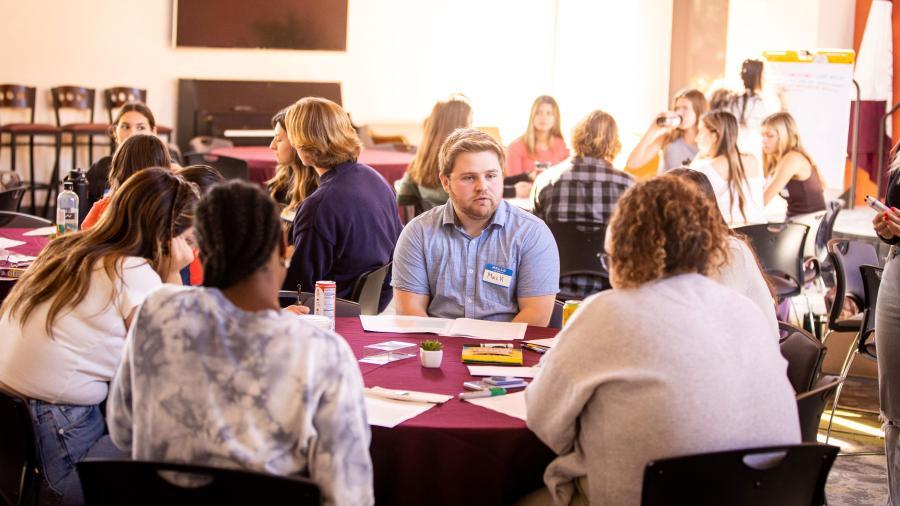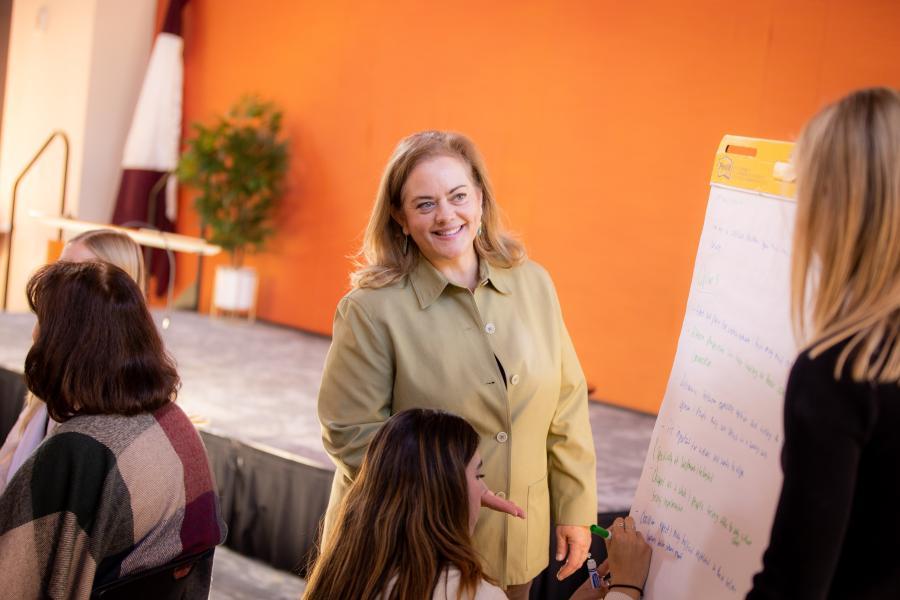Free Speech and the Hospitable Campus

by Kelly Vivanco '24
What does free speech mean in a highly partisan society? In November, the Westmont Center for Dialogue and Deliberation hosted a 75-minute deliberative conversation, Free Speech and the Hospitable Campus, in the Global Leadership Center. Both students and faculty participated at the event, which explored this question: In today’s contentious and divided political environment, what should our college do to meet the roles and responsibilities of higher education to foster the kind of campus community we want?
Since 2018, the Center for Dialogue and Discussion has worked with local churches, businesses and Santa Barbara residents to solve problems in the community — discussing, among other topics, immigration, homelessness, sexuality and reproduction, trash production and disposal, and the opioid crisis. Led by Deborah Dunn, professor of communication studies, the center typically organizes one community deliberation per semester, either at Westmont Downtown or on campus. Students receive training to act as event planners, facilitators and note takers.
Michelle Hughes, professor and education and chair of the department, participated in the event in November. “It was a thoughtfully organized gathering characterized by listening rather than debate,” she says. “As I left the deliberation, I walked away with pride in the best way, impressed by the quality of the conversation.”
Guided by a handout at tables with students and faculty mixed together, participants evaluated various positions and priorities in the free speech debate, and they considered possible solutions as well as their trade-offs.
“I think the heart of it was helping people identify what they hold valuable,” Dunn says. “What are we going to give up, or be willing to live with, to have more of what we want?”
Though following the same handout, tables differed in their discussions. When her group discussed physical and emotional safety, Hughes says, “The need for belonging and hospitality emerged, as did concern for marginalized groups on school campuses rather just putting a focus on free speech.”
Andrew Bradshaw ’25 served as a student facilitator and said his table discussed free speech’s potential benefits and harms.
“The event felt very successful,” he says. “I learned a lot from people’s thoughts. Everyone was civil and appreciated what everyone else had to say.”
Taking a Group Communication Leadership class fall semester inspired Bradshaw to volunteer for the event, where he grew both in skills and in appreciation for the role of a facilitator.
“As a facilitator, your job is not to voice the opinion,” he says. “I think that has practical applications in real life.”
Dunn explained that these events are labor-intensive and thus happen only once per semester. Hughes, Bradshaw and other students expressed a wish for the center to expand its efforts to achieve quality deliberation and address polarization.
“At this event, people wanted to engage and wanted to listen,” Hughes says. “It was so refreshing.”

